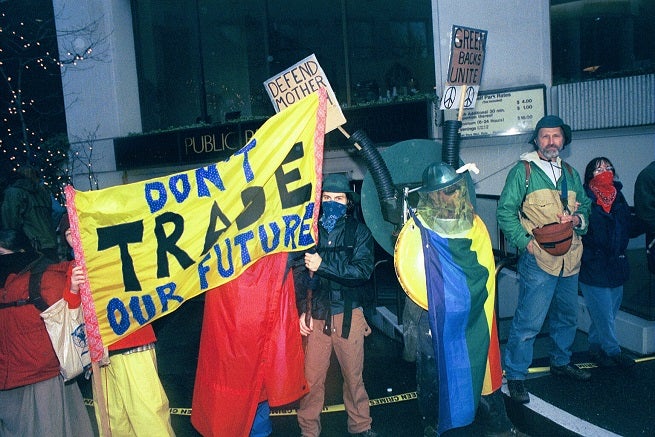Uncategorized
House Bill Would Help Make Trade More Fair

Fair trade will not become a reality for this country until U.S. officials get a better handle on those who try to break the rules. And a new bill would go a long way towards improving enforcement.
The Jobs and Competitiveness Act, HR 2756, was unveiled by several House Democrats late last week in an effort to toughen U.S. trade laws and mandate that the White House boost efforts to crack down on violators. It would allow the Commerce Department to place countervailing duties on nations that manipulate their currency.
“The Jobs and Competitiveness Act would go a long way in addressing issues that have long plagued U.S. trade policy,” Teamsters General President Jim Hoffa said. “The legislation gives the U.S. a real path to enforcing violations in key areas like currency manipulation and labor standards by our trade partners.”
The bill bolsters federal trade enforcement by providing new tools to support American workers and businesses and ensuring that a priority of the current administration is to ensure that trade is fair across the globe. The legislation also includes language that would encourage domestic insourcing and discourage foreign outsourcing.
The Teamsters have taken aim at past trade deals like the North American Free Trade Agreement (NAFTA) because they jeopardize American employment and have led to thousands of jobs being shipped overseas. Now that leaders in Washington are looking to revamp NAFTA, U.S. workers need real, enforceable changes that protect their jobs and ensure a fair playing field.
That means being bold in pressing for a fair trade deal that puts the people above the powerful. A new labor rights chapter as part of NAFTA 2.0 is essential as the rules included in the existing NAFTA deal are largely unenforceable. And that has shown, especially when it comes to trying to enforce basic labor rights with nations such as Mexico.
A new NAFTA must have a robust labor rights chapter that prohibits child labor and forced labor and protects the freedom of association and the right to bargain collectively through an independent union. These fundamental rights must be enforceable by the same or better trade sanctions that protect commercial interests.
If elected officials want to truly change trade deals so that they benefit working Americans and not just the corporate elite, these are the types of reforms that must be made. Making such agreements work for everyone is essential to maximizing the economy and expanding opportunity in this nation for all.